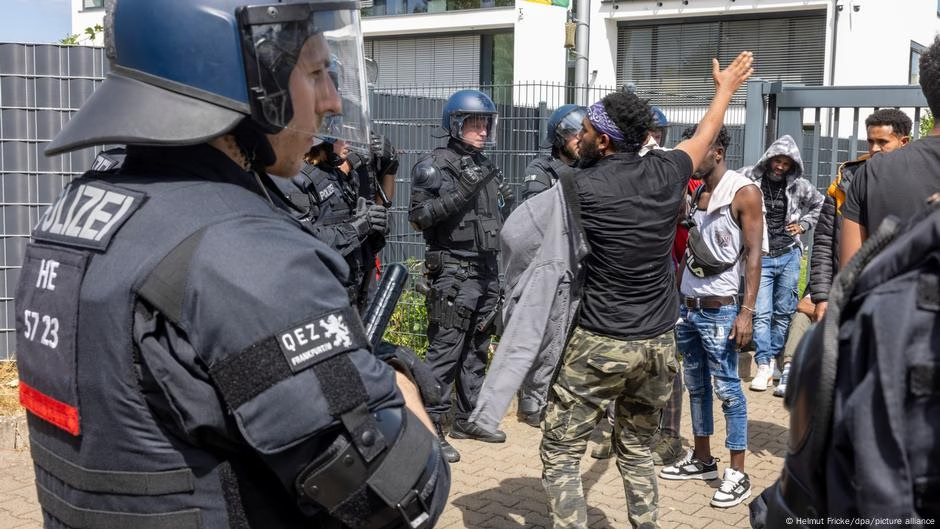On March 26, German police conducted a major raid against suspected members of the Brigade N’Hamedu in six states, with a simultaneous search in Denmark. The Federal Public Prosecutor’s Office has accused 17 individuals of founding or being members of a domestic terrorist organization. According to authorities, the German branch of Brigade N’Hamedu is believed to have organized violent attacks at Eritrean festivals in Germany in recent years and is seen as a terrorist organization. The group is internationally networked and aims to overthrow the government in Eritrea, with some members considering violence against German state institutions as legitimate.
The conflict between different Eritrean diaspora groups stems from Eritrea’s status as an authoritarian, one-party state ruled by President Isaias Afwerki. Eritreans can be conscripted for indefinite national service, leading many to flee the country. Around half of Eritreans now live abroad, with over 80,000 living in Germany. The Eritrean government maintains control over its diaspora through laws requiring them to pay a 2% diaspora tax and restricts their ability to obtain a new passport or property in Eritrea without proof of payment.
Eritrean festivals in Western countries, officially cultural events organized by the Eritrean government and its exile groups, have changed over time from commemorating the struggle for freedom to becoming platforms for propaganda for the authoritarian regime in Asmara. Some groups, like Global Yiakl Eritrean Movement and United4Eritrea, criticize these festivals for unilaterally supporting the government and collecting donations for it.
The Eritrean Research Institute for Policy and Strategy condemns the police raids against Eritreans in Germany and the classification of individuals as terrorist suspects, arguing that the raids and classifications are unjust and unfair. The forum also accuses festival organizers of serving as propaganda platforms to intimidate Eritrean refugees abroad.
Germany faces a dilemma as it should not take the side of the Eritrean government, which often tries to pressure or monitor members of the diaspora, but at the same time, cannot tolerate violent actions by organizations like Brigade N’Hamedu on its soil. Kurtz, an Eritrea expert, believes Germany should support the non-violent opposition in the diaspora and support democratically-oriented actors, even if bilateral relations with Asmara continue. Since Germany currently does not have an ambassador to Eritrea, its influence is limited, but Eritrea’s interest in improving relations with Germany presents certain avenues for influence. The action against Brigade N’Hamedu in Germany is expected to positively influence Germany’s position with the regime in Asmara.
Source: https://www.dw.com/en/eritrea-s-conflicts-also-being-fought-out-in-germany/a-72100866?maca=en-rss-en-all-1573-rdf







